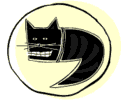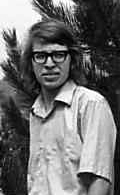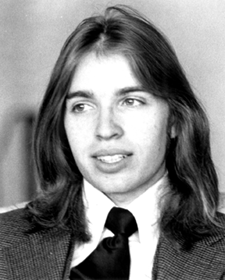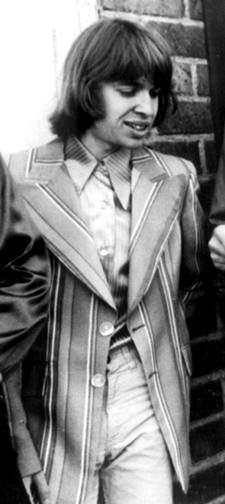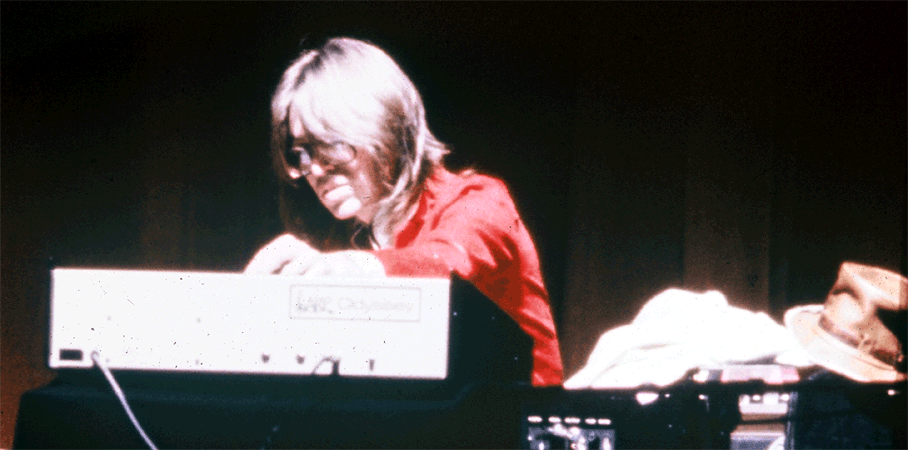Mark Goldstein - Songwriter Bio |
|
Mark Goldstein & Frederick Moore co-wrote 7 songs: Queen Of Clubs 1971 Goldstein-Moore (see Skogie Discography) Chant Of The Dying Insects 1970 Goldstein-Moore Mellow Pheartz 1970 Goldstein-Moore I Can See Thru The Haze 1970 Goldstein-Partridge-Moore Guberud 1970 Goldstein-Moore-Rogers-Guberud Candy Crystal Jam 1972 Goldstein-Moore-Peterson-Galles-Greenberg It's A Free Country 1971 Goldstein-Moore-Brenner-Kubera-Gasterland-Greenberg Mark Goldstein also wrote these songs: Jonathan Smith 1974 Goldstein (see Skogie Program) Seven Corners 1971 Goldstein (see Skogie & the Flaming Pachucos v2 Program) Makin' So Much 1970 Goldstein-Atkinson (see An English Sky) Land of the Free 1979 Goldstein (see the bottom of this page.)
SEE:
Skogie & The
Flaming Pachucos (V1)
Audio Minnesota State Fair time came, bringing the Twin Cities "answer to Woodstock" ... Moore was there in his Teddyboy outfit, black jeans, purple boatshoes and his original used gym shirt, the one that got him his nickname because it came with the nonsensical word SKOGIE written on it. Mark Goldstein was also there, picking his way through the crowd with his fellow Euphorites, mentally wishing he had the nerve to step up on the stage at the B-Sharp Music booth and play the house brands like those dumb-looking guys with the Bermudas and tennis shoes. …. And that guy with the greasy black jeans on…Skogie? Gimme a break. Euphoria stopped to watch, hoping for a laugh.The laugh was not forthcoming. After the blonde haired kid
figured out how to turn off the wah-wah pedal, the group started sounding like
the Beatles and the Mothers combined. Goldstein, fresh out of 8th
grade, waited to talk with "Rick Skogie" Moore after he got down from the stage.
An
English Sky split. ("Who is this creep with red teeth?") So did the
other members of Euphoria. (Black pants?!!!!?") Moore and Goldstein
exchanged phone numbers. The new group was Hans Gasterland, drums, Dick Rogers, reeds and anything else that happened to be onstage, Mark Winger, guitars and bass, Goldstein, keyboards and Frederick Moore, vocals and guitar. Limited vocalists and Moore's new interest in Frank Zappa forced the group into a heavy instrumental bag. Moore wrote and scored lengthy compositions, devised arrangements and taught them verbatim to the band. He also taught Rogers to play saxophone. Minneapolis' West Bank area blossomed with Skogie graffiti, and black dry-makers became standard equipment for Skogie fans, who festooned every lavatory wall in Southeast Minneapolis. Skogie T-shirts and stickers became omni-present. The band auditioned a melange of Beatles songs, Frank Zappa songs and original material at the Coffeehouse Extempore and became the house band for two or three months. Besides the Extemp, gigs were hard to come by. School parties, Church socials, benefits galore, and even the Extra-Ordinare jazz club sponsored impecunious gigs for the band. One of the more memorable was at 916 Hennepin Avenue. Moore recalls, "Our one time manager Jim Tiseth, secured us several gigs at a venue called The Club. It's behind a black door numbered 916, there are no other signs identifying it. We played there for gatherings of drag queens and their dates." Reedman Dick Rogers was the only Pachuco Moore trusted to write his own parts. "We really had to pamper him," says Moore, "He was our 'Mr. Versatility!" "Pampering" took the form of the Skogie horn band. "Dick really loved Chicago. In fact he WAS Chicago." The horn band couldn't stay in tune, so Goldstein drew the lot of firing them. A few months after the group hired Greg Kubera to play bass, Rogers left because he wanted to play bass. Jim Greenberg became the new reedman by answering an ad in the Insider. Later, summer 1971, while Greenberg was on vacation, Mark Goldstein, after a visit to the state fair, wandered into the Coffeehouse Extempore and heard Homestead, Brian Peterson's CSN & Springfield-derived group playing (of all things) Frank Zappa's "Mudshark." Goldstein invited singer-bassist Dennis Peterson and singer-drummer Allen J. Galles home for a midnight jam. Moore, Goldstein, Peterson and Galles jammed on some of Moore's tunes. There was no doubt in any of their minds, this was it. Moore and Goldstein hired them on the spot. The Pachucos are seasoned eccentrics. Goldstein, 17, the youngest member of the group, has probably been in show business longer than anyone else; but not as a musician. At age 6, Little Brother was a bridge-playing prodigy, making the rounds of tournaments as his dad's partner. His showing in the national tournament at 7 made him friends like Congressman Clark MacGregor and General Gunther. They wanted their pictures taken with him. Publicity also made his primary school classmates undying enemies. "They made me seem like an egghead. Everything I did had to be cute. I wasn't an egghead at all. I was just like the other kids." To prove it, Goldstein resigned professional bridge in disillusionment at 8, and became state junior league ping-pong champ instead. Somehow during all of this cosmopolitan activity, Mrs. Goldstein persuaded her son to take piano. "At lessons I used to throw my books at the piano and stuff..." Goldstein started listening to WLS radio in Chicago under his pillow at night, and in the sixth grade, saw the Yardbirds at Dayton's Department Store sock-hop. Then one day he was out skate-boarding and saw one of his friends with his new ELECTRIC guitar. "I saw him, and it looked so cool on him and everything. I had to have an electric guitar. That night as I lay in bed I realized I just had to have one." With $15 and $10 parental subsidy, he bought his guitar and began playing 15 minute versions of "Foxy Lady" with 13 minutes of feedback. By the time Goldstein was in the eighth grade, he was a serious musician, on keyboards and leading his own band, Euphoria. The group set up in the Goldstein basement in the Euphorium, the room that still headquarters Skogie. -excerpted from "Skogie" by Tom Murtha (Cover Story for Insider Magazine 1971) Hear: "Land Of The Free" on mp3 (Land Of The Free published by TwinTone Records) |
